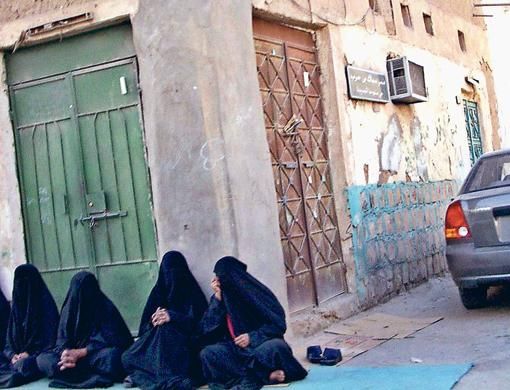Riyadh: Talking about poverty in Saudi Arabia is no longer a taboo. This was possible mainly after changing a mindset, following an unusual visit in 2002 to the poorest neighbourhoods of Riyadh by then Crown Prince Abdullah Bin Abdul Aziz.
During the visit he and his entourage tramped into cramped and decrepit homes and met with families struggling to earn a livelihood. After the visit, he reiterated the determination of Saudi Arabian government to eradicate poverty from the Saudi society.
Prince Abdullah's remarks after this rare visit brought this glaring reality to lime light for the first time. Now, there is nothing unusual in talking about poverty in the richest country in the region.
There were days when some people considered dealing with the issue of poverty as a shame and something to be concealed. Such days are gone.
Last year, a Saudi young man produced a short documentary film, which contained revelations of Saudi officials that poverty is restricted to remote regions of the Kingdom.
Tarad Al Asmary, who worked in the media field earlier, produced and directed the documentary entitled My salary is 1000 riyals. He circulated the video film through the internet to draw the attention of the public to the issue of poverty from an angle that most people are unaware of.
Dr Rashid Al Baz, professor of social service at Imam Mohammad Bin Saud Islamic University of Riyadh, carried out a scientific study titled "Study about poverty in the Kingdom" in 2005. The study noted that Saudi citizens, who have a monthly income of less than 1,600 Saudi riyals (Dh1,566), can make sufficient living.
"However, those with an income of less than SR1,200 are living below poverty line. In both cases, the cost for housing was not counted," the study noted.
According to Al Asmary, the ministries concerned with tackling the problems of unemployment and poverty in the Kingdom are still unaware of the real magnitude of these problems, including their root causes, various forms, ways to address them, and major regions hit by them.
Al Asmary's documentary disseminates a clear message that there are major concentrations of poor people living in the Kingdom's cities also.
There have been no official statistical reports showing the exact number of the poor in the Kingdom. Minister of Social Affairs Dr Yousuf Al Othaimeen earlier revealed that 662,125 families take advantage of social insurance schemes.
If it is assumed that a family has an average five members, the minister's statement would imply that there are 3,310,625 people living below the poverty line in the Kingdom.
This is not a small number. In addition to this, the figure of those unemployed exceeded 400,000.
At the same time, the Minister of Social Affairs, in an interview with Al Watan Arabic daily in September last year, estimated that the number of the poor in the Kingdom reached about two million. (This accounts for 10 per cent of the 20 million Saudi population, according to an estimate of the World Bank).
Speaking to Gulf News, a number of social researchers observed that this figure and the statement of the minister were issued at a time when the inflation rate in the Kingdom was comparatively lower.
This also does not include the families, which are "too decent and modest" to disclose their real living conditions.
Fahd Al Shamri, a Saudi writer, said that the whopping inflation will lead to further shrinking of the middle class, which makes up 90 per cent of the Saudi population.
"The government is exerting great efforts to address the problem of poverty through mapping out a national strategy to combat poverty and launching a charity fund in this respect," he pointed out.
"The fund was created in the form of a social foundation that is working to improve the living conditions of the poor, rehabilitating them and fulfilling their basic necessities."
Meanwhile, Dr Khalid Al Bassam, professor of economics at King Abdul Aziz University of Jeddah, warned of the devastating social impact of the phenomenon of shrinking middle class that could worsen to the extent of its withering away in future. This could result in an increase in the number of poor.
Saudi newspapers are publishing periodical reports illustrating the living conditions of the poor, who are living in tents and huts made of tin sheets, and do not have basic amenities.
According to unofficial figures, nearly 20 per cent of Saudis are living under poverty line while over 75 per cent of Saudis were forced to take long-term personal loans. Fahd Al Ahmadi, another Saudi researcher, said: "It is unfortunate that we do not have any official figures about the exact number of people living below the poverty line."
Poverty among Saudi women is also at an alarming level considering the fact that they are the basic pillar of family life in any society.
Jaziya Bint Mohammad Al Shubaiki, a Saudi researcher, noted that the Saudi government is keen on combating poverty among women.
"Women are the major recipients of social insurance schemes in the Kingdom in their capacity as widows, divorcees, abandoned women, married with no family to support or wives of prisoners, and the like," she said.













